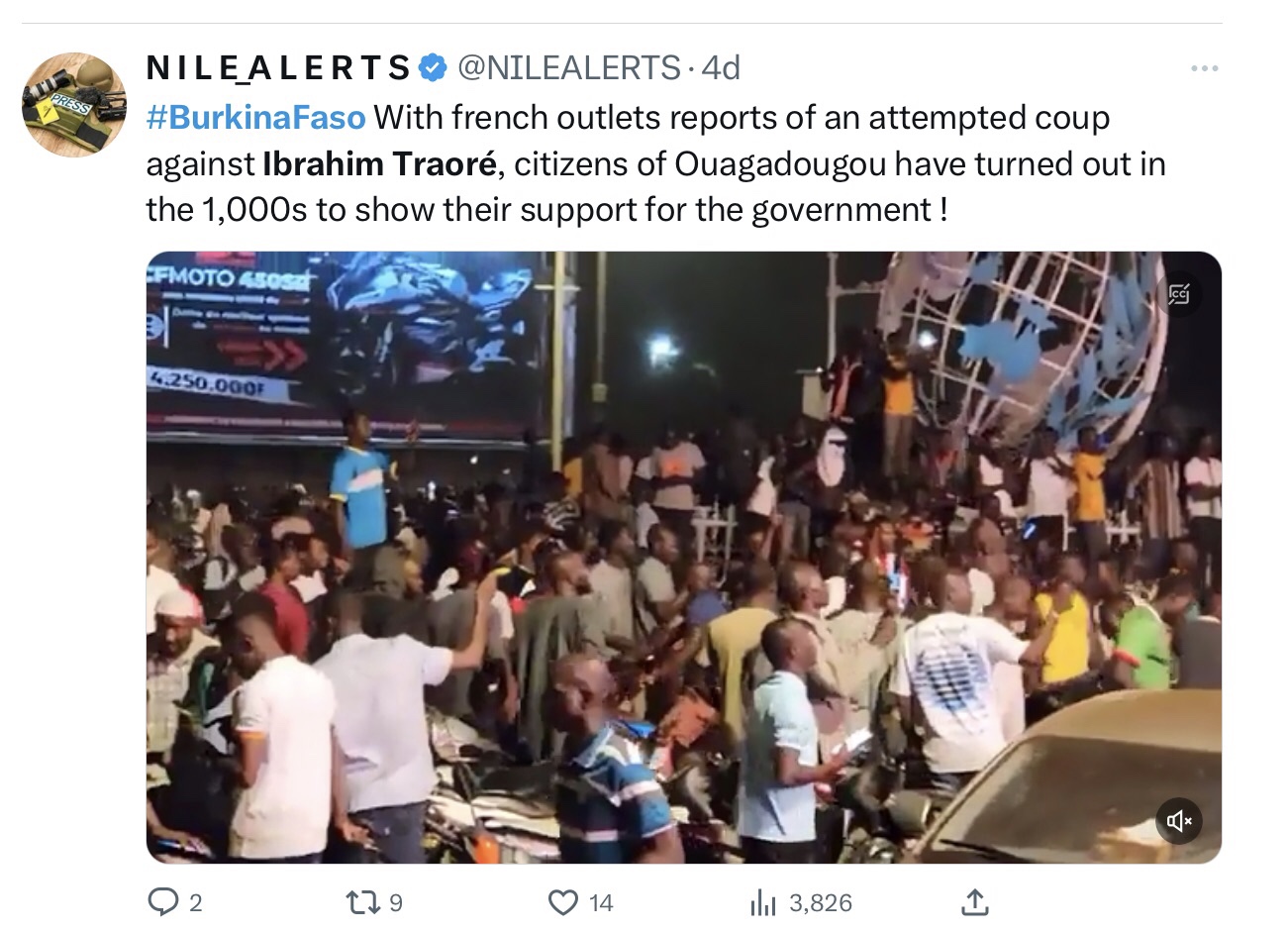News emerged this week of a foiled attempt to undo the popular overthrow of the former government of Burkina Faso, by the military under the leadership of Ibrahim Traore. The ousting of the former government of Lt-Col Damiba – the self styled ‘President of the Patriotic Movement for Safeguarding and Restoration’, which took place in September last year, was overwhelmingly welcomed by the people of Burkina Faso and Ibrahim Traore has proven to be a hugely popular leader. The current spokesperson for the transitionary government, Rimtalba Jean Emmanuel Ouedraogo, announced on Wednesday 27th September this week, that an attempted coup had been foiled by the security and intelligence services the night before on Tuesday.
Details of the attempted coup, the second such attempt in a month, were revealed sometime later by the military prosecutor’s office, who confirmed that four officers had been arrested and that two others were on the run – assumed to be at large somewhere within West African region. The prosecutor’s office said, that they were in possession of credible evidence to support ‘allegations about a plot against state security implicating officers’.
Prevailing threat of military intervention by forces from ECOWAS
The new governments of Burkina Faso and its neighboring countries of Mali and Niger, have all pledged to rid their citizens of the plunder of their former colonial masters, and to restore stability and prosperity to their countries. Whilst the new governments, enjoy popular support among the peoples of the West African states, they continue to face the threat of possible military intervention by the Economic Community of West African States (ECOWAS).
Neighboring countries of Mali and Niger have joined Burkina Faso in a security pact
Most recently, the overthrow of President Bazoum in Niger, triggered a threat by a coalition of members of ECOWAS, to deploy troops in order to restore to power the deposed President of Niger, Mohamed Bazoum. The three states, Burkina Faso, Mali and Niger, in response to the threat, signed a security pact on 16th September, which proclaimed that each country would come to the assistance of any of the others in the event of a rebellion or external aggression.
Speaking of the attempted coup, Burkina Faso’s spokesperson, Rimtalba Ouedraogo, said:
‘The actors of this disastrous project of destabilization, driven by interests at odds with the dynamic of re-conquest of our national territory and the sovereignty of our dear country, harbored the dark intention of attacking the institutions of the republic and precipitating our country in chaos’
Crowds take to the streets to hail Burkina Faso’s leader, Ibrahim Traore, in defiance of the coup plotters
The announcement of Burkina Faso’s foiled coup, was met on the streets of the capital, Ouagadougou, with rapturous chants of support from the government’s supporters. Thousands of flag waving citizens took to the streets of Burkina Faso’s capital, Ouagadougou and in other cities across the state, carrying banners with the image of their iconic leader, Ibrahim Traore.

The latest attempt represents the 5th attempt to destabilize the government in the last 12 months. Some pundits have suggested that the French government may have been behind the attempt by providing arms to dissenters via the Ivory Coast. Supporters and in particular the youth of Burkina Faso, have been rallying for a major nationwide demonstration on the weekend following the anniversary of the overthrow which took place one year ago on Friday. Organisers say they intend to ‘send a strong message to those who are trying to sabotage our transition!’
Elections not the priority, ‘security that’s the priority’
Speaking on state television Ibrahim Traore when asked about elections, told reporters:
‘It’s not a priority, I’ll tell you that clearly, it’s security that’s the priority’
He explained that first, there was a need to make some ‘partial changes’ to the constitution, which he said currently only reflects “the opinion of a handful of enlightened people and not that of the popular masses’












